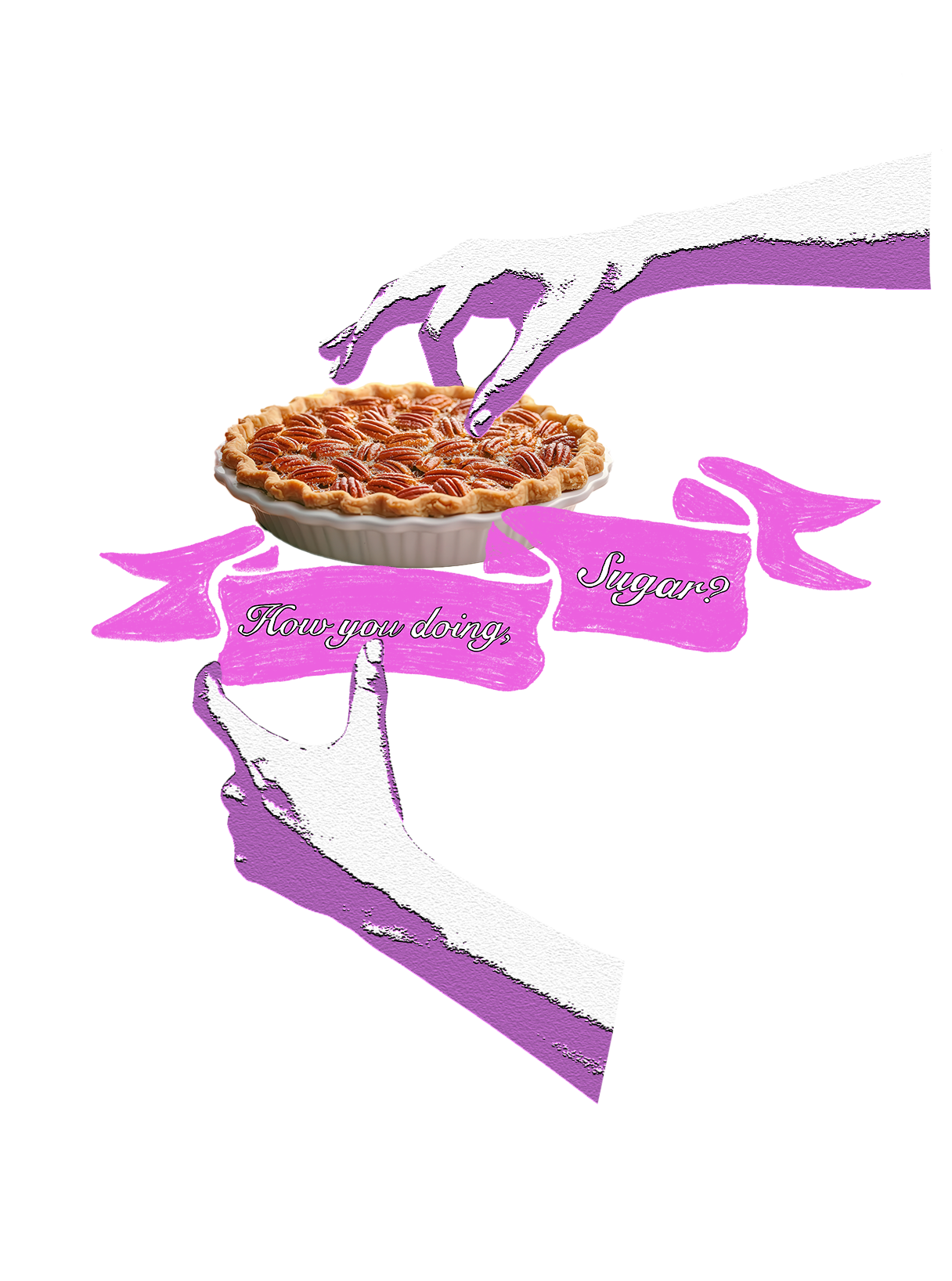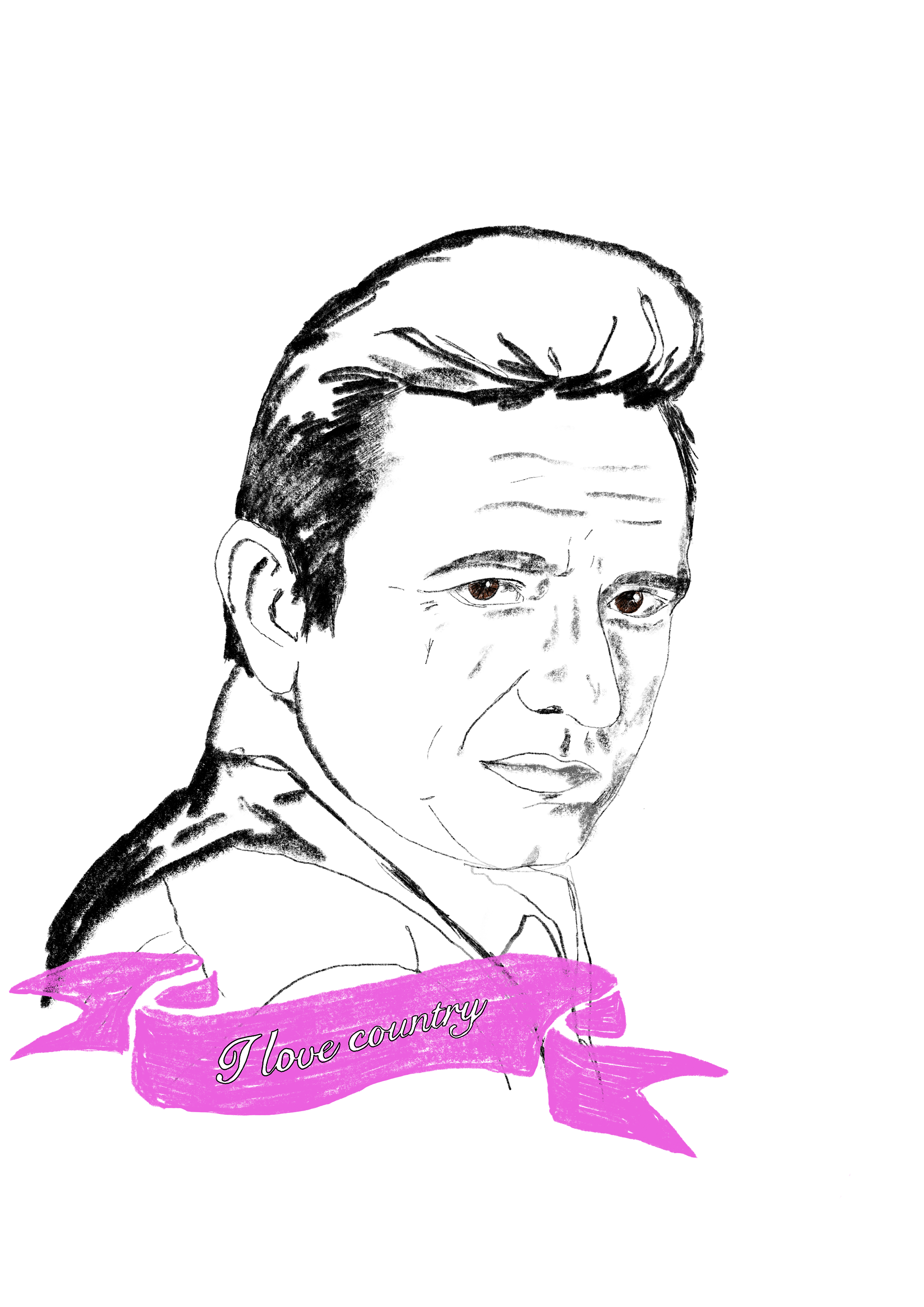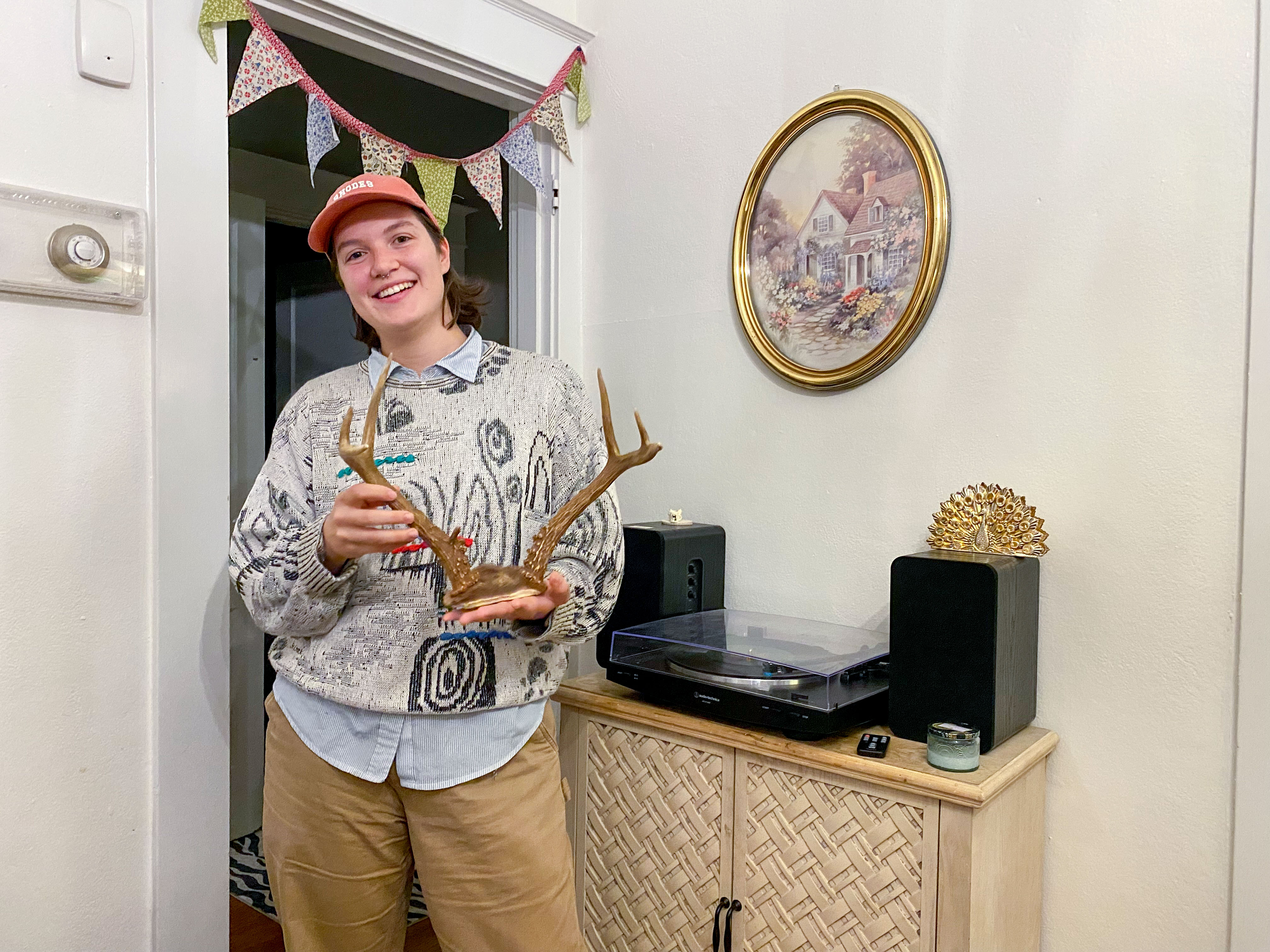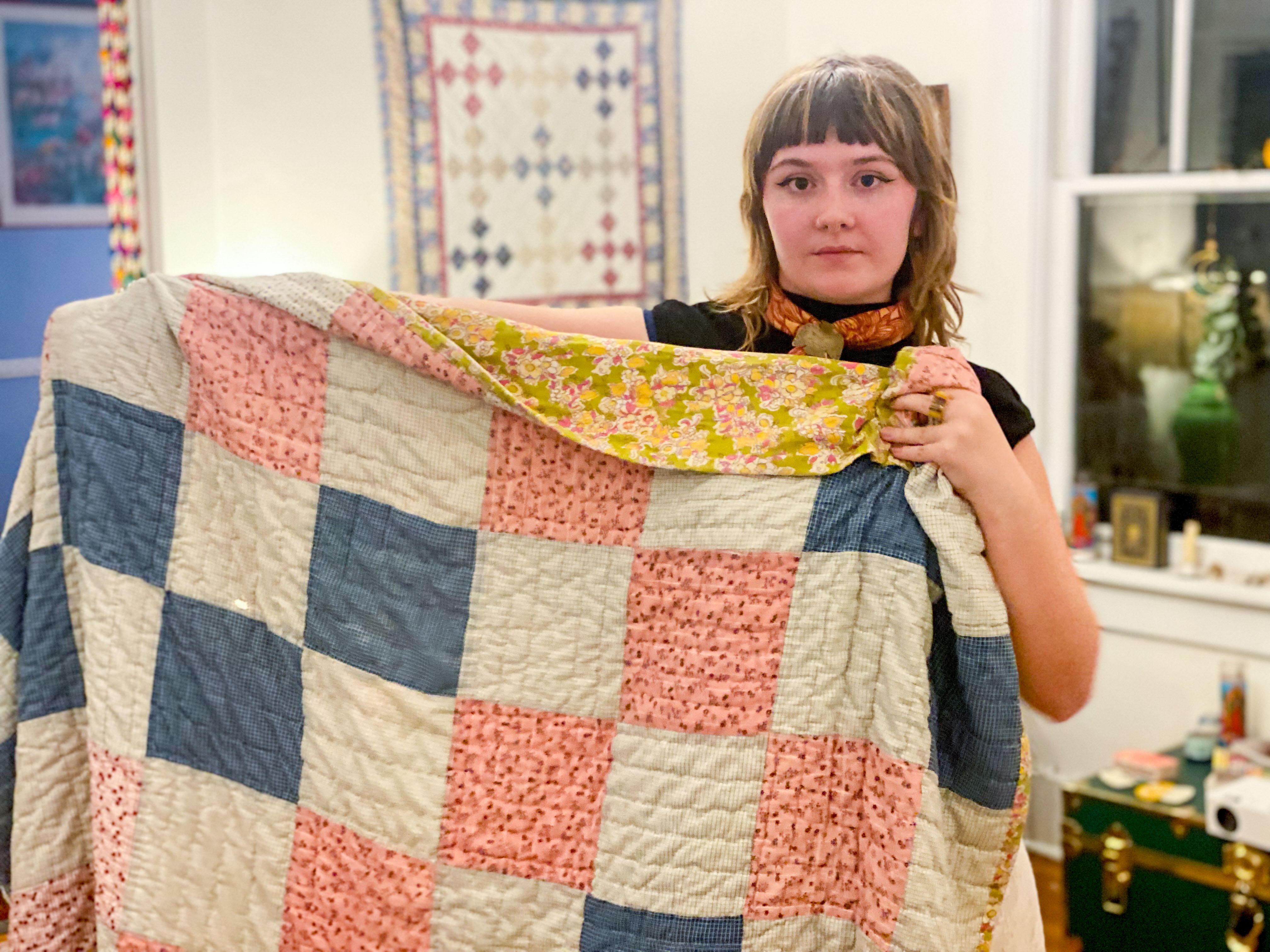The real Deep South – ”I can be proudly Southern and progressive”
The United States’ South is like the U.S’s U.S: compared to the rest of the country, it has more guns, evangelic Christians, conservatives, deep-fried food, overweight people, and more rednecks. At the same time, it is a cradle of resistance and progress. Tennessee students tell Visiiri what makes them proud of their contradictory home region.
Original text and pictures: Juuso Pikkarainen
Graphics: Nora Nieminen

On a November afternoon in Memphis, Tennessee, the temperature is just shy of 20 degrees Celsius. I am sitting on the porch of an old brick house with Zoë Dominguez from the state capital, Nashville, and Ethan Morris from Alabama – and where else would we be? After all, the stereotypes of Americans sitting on their porches with shotguns and drinking moonshine originate from here.
Donald Trump has won the election two days ago. I ask the visibly exhausted pair how they are holding up.
“Well, you know.”
Zoë and Ethan are both left-leaning liberal students living in the deeply conservative South. Yet, they are still proud of their home region, even on a day like this.
“It took me a long time to develop and accept my Southern identity. My dad is from New Jersey, and he often mocked the local people here for their accents, saying they sounded uneducated”, Zoë says, lighting a cigarette.
Many parents in Southern families try to teach their children to avoid using the Southern dialect, as the stereotype of backward Southerners is deeply ingrained in American minds. Zoë realized this herself.
“I decided I wouldn’t say ‘ain’t,’ or ‘y’all,’ or ‘reckon.’ I wanted to eliminate Southern expressions from my speech because they make me sound stupid.”
Later in life, Zoë began to see beyond the stereotypes imposed on her.
“When Trump first came to power, I started hanging out with more progressive Southerners. I began reading about the history of the civil rights movement and activism in the South, and I realized all this is something I can be proud of.
“People say the South is an incredibly racist place, and they’re not wrong. But it’s also where the majority of the country’s anti-racist movements have either taken place or originated from.”
Zoë’s right. Most of the Black population in the country has always lived in the South. Rosa Parks sat down in her bus in neighboring Alabama, and Martin Luther King’s assassination site is a fifteen-minute drive from this porch.
“Similarly, for example, the labor movement and unions have their roots in the Appalachians, with railroad and coal miners’ rebellions”, Zoë continues.
“The whole term ‘redneck’ originally refers to striking coal miners who showed their defiance by tying a red bandana around their neck”, Ethan adds.
Progressive and rebellious movements have emerged under white supremacy—something that had to be fought against.
Ghosts of the Confederacy
The definition of the South is somewhat controversial. Not everyone considers Kentucky to be truly Southern. Texans often say they are Texans, rather than a part of something bigger. In the end, the South is best defined as the states where slavery was legal when the United States was heading into the Civil War. The Southern states that had enriched themselves through slave labor formed the Confederacy, which defended the institution of slavery and ultimately lost the war. The remnants of that war can still be seen all across the South.

“Back in high school, I’d get to school, and eight to fifteen pickup trucks would do donuts around the parking lot, with big Confederate flags attached to the back”, Zoë describes.
Many interpret the Confederate flag, also known as the rebel flag, as a call for the era of white supremacy before the war. However, the flag holds different meanings for different people.
Up until the 1970s, a false, Confederate-friendly version of history was taught in many Southern schools. According to this narrative, Southern soldiers bravely defended themselves against the tyranny of the North and expanding federal government.
“I’m certainly not trying to excuse them, but I don’t know the extent to which their use of the flag signals that they are unchangeable racists”, Ethan says,
“Versus the extent to which they are identifying with this anti-government urge that goes far back in southern history.”
To Zoë, there is something relatable in this sentiment, or at least something that reflects the Southern mindset.
“I think of the civil rights movement, the Black Panthers, the labor movement. Not everyone sees these as part of Southern identity, but for me, they will always be an essential part of it. And I think the flags on those pickup trucks represent the same attitude, just perhaps directed in a different direction. People use them to signal rebellion—against something.”
“And I believe that is clearly one of the reasons why Trump won the election. The message from Harris’ campaign was essentially, ‘We need to maintain the status quo and avoid descending into fascism’—and yes, we certainly shouldn’t descend into fascism”, Zoë says, raising her eyebrows.
“But if the campaign’s message is only that ‘the other option is wrong and I will keep everything the same,’ it’s entirely understandable, that people who can’t afford eggs or gas will turn to the man who may never have worked a day in his life and uses shocking language, but acknowledges that things are bad and represents a revolt against the existing system.”
Ethan agrees.
“To me, rebellion is deeply tied to the Southern mindset, and a lot of it is healthy. But outside forces, namely like forces of capital, know how to exploit it. The biggest thing breaking up the unity of the American working class is racial tensions, and I think that’s exactly what this is about. When those white coal miners went on strike, what did the mine owners do? They brought in Black workers as scabs. Suddenly, the anger against the owning class was turned into anger against people of a different color who were in the same position.”
Rebellious turned Republican
Another example is country music, whose center is Zoë’s hometown of Nashville.
“Originally, country music was rebellious too”, Zoë explains, lighting another cigarette. “Not necessarily in the sense that it called for revolution, but it highlighted social injustices and had a certain anti-establishment viewpoint.”

Johnny Cash sang about the flaws in the prison system, Kris Kristofferson about the poor treatment of veterans and the futility of war. Johnny Paycheck’s biggest hit tells his boss to shove it.
“I think country music changed permanently after 9/11 and because of that motherfucker Toby Keith. Country was patriotic before, too, but now it’s that in an uncritical and Islamophobic way.”
Zoë is an aspiring country musician herself, writing socially conscious songs, such as a recent one about the Dobbs decision.
“The likes of Willie Carlisle and Nick Shoulders continue the tradition and sing like how every golf course should be a nature reserve.”
To her, being part of this tradition is a way to resist negative stereotypes.
“I can be proudly Southern and progressive. I get to define what Southern identity means to me.”
”If you don’t have shit, you’ve got poop”
Annet-Claire Tilley, an Arkansas native, pours me a cup of steaming hot tea. It’s a rainy Saturday afternoon, and her kitchen feels hot and humid, like a spa. My clothes are sticking to my skin.
When asked about their identity, Annet-Claire, or AC, as they prefer to be called, has a clear answer.
“I’m first and foremost a Southern lady, then a non-binary dyke—you can put that in your article—and everything else comes after that.”
They feel a strong connection to the lifestyle and landscapes of her farming family.
“People say Southerners are slow, and I say damn right we are! I know they mean that we’re stupid, but that’s not the point. First of all, when it’s around 40 degrees Celsius and incredibly humid outside, you have to move slowly if you don’t want to pass out”, AC says, laughing heartily.
“Secondly, it’s about genuine, unhurried human connection. Southern hospitality is a real thing: people here are communal and care about each other.”

The South is indeed a friendly place. Especially outside the big cities, every passerby is greeted, elders are always addressed with sir or ma’am, and new acquaintances are welcomed warmly. When I stop at a gas station, the clerk starts serving me by asking, “How you doing, sugar?”
At the same time, the South is also a very hostile and even dangerous place for various minorities because of its conservatism. In Tennessee, it is illegal to perform in drag in public, and many states have banned educational materials that discuss sexual minorities.
According to AC, this is why the rest of the United States has much to learn from the South, as many of the anti-trans laws Trump’s administration plans to implement are already in effect here.
“People are terrified that Trump is coming to do this and that. I’m like, girl, he’s been down here the whole time. We’ve been living and operating here all along under white heteropatriarchy and evangelical power—one-third of the U.S. LGBTQ population lives here!”
“We know how to survive and get things done with limited resources or simply whatever is available. If you don’t have shit, you’ve got poop. We know how to navigate, organize, and operate within these various oppressive mechanisms in this fucked-up shitty system, whether it’s about gaining traction, building momentum, or staying invisible when necessary.”
AC too believes that rebellion is a fundamental part of the Southern mentality.
“In my opinion, there’s nothing more ‘redneck’ than being anti-establishment. But this ‘by God, leave me alone, I’m gonna sit on my porch, smoke my joint, tend my land, have my guns, mind my own business, and you better not bother me’ attitude has been warped by religion and the Republican politics”, AC says, with a broad Southern drawl.
“These bootlickers, cop-lovers, and authority-worshippers are the complete opposite of what rednecks used to be. In my view, the students protesting against Biden’s administration and its decisions on trans people and the war in Gaza are a lot closer to the true spirit of old-school rednecks than they realize.”
“I’ll say ‘y’all’ until I die”
Violet Reynolds O’Brien, who moved to Atlanta, Georgia, after spending her childhood in Alaska, nods enthusiastically to her roommate AC’s passionate lecture. For her, one of the most beautiful expressions of Southern culture is quilts.
“They’re a great example of the community and way of life in the South. On one hand, they provide an opportunity for women to gather and work together. Quilts also tell stories and preserve traditions. Additionally, they serve as a means of passing down knowledge. For instance, during slavery, quilts were used as signals in the so-called Underground Railroad, indicating where a safe house was for escaping slaves”, Violet explains passionately.

“In the South, everything is reused. Quilts are usually made from old clothes and fabric scraps. Nothing is thrown away until it’s been fully used up.”
When I ask Violet what she’s proud of about the South, she lights up and starts almost like dancing in her seat at the kitchen table.
“I love Southern hospitality. I love Southern food, and porches, and the lush nature, and the music. I love the music. I love country music. I love dancing to country music.”
“I am a very proud Southerner. I will defend it to my last breath and say ‘y’all’ until I die”, Violet declares with a slightly playful, exaggerated posture, before continuing:
“But it’s a very nuanced identity.”